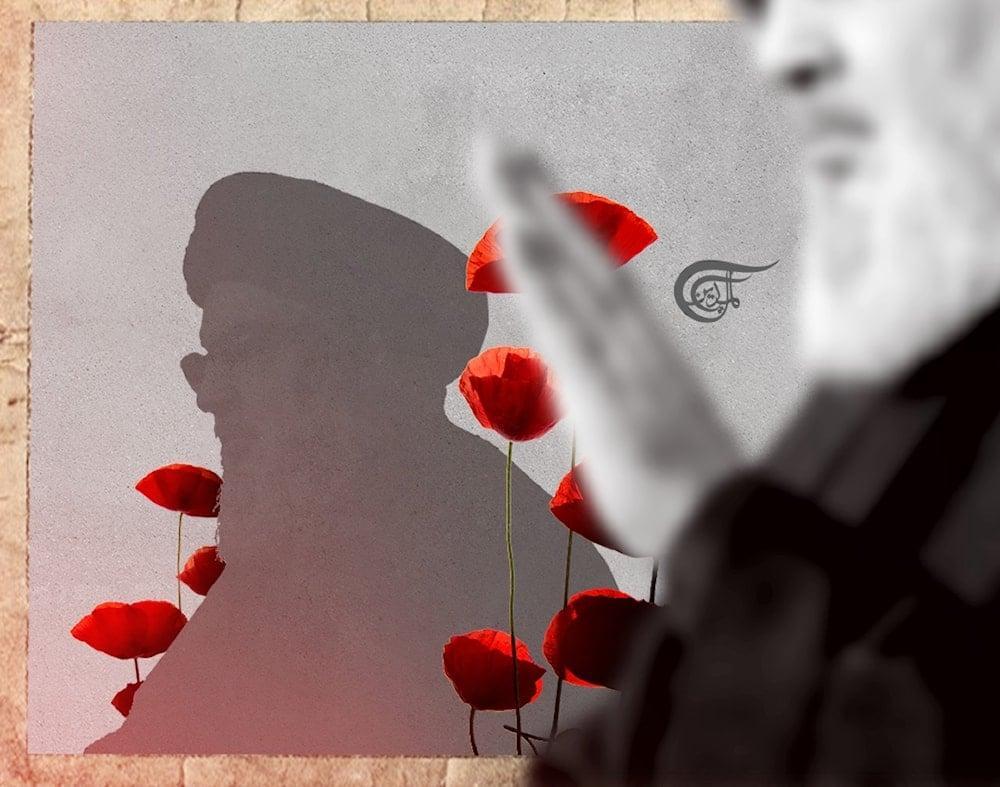
The 27th of September, 2025, marks the first anniversary of the martyrdom of Sayyed Hassan Nasrallah, who embraced martyrdom from a cowardly and dastardly Zionist attack. A cleric, politician, orator, motivator, and third secretary general of the socio-political movement, Hezbollah in Lebanon, Sayyed Nasrallah’s legacy reveals much more than the official roles he assumed. He was a symbol of resistance and defiance in the Middle East, where “Israel” has been given a free license to commit egregious crimes against humanity and murder innocent civilians in Gaza and beyond. He countered western hegemony and Israeli aggression with strategic tact, dexterity, wisdom, and dedication, and his martyrdom elicited mass mourning across Lebanon and Palestine, where he was lionized as a hero. History will count him as one of the most powerful and popular men in the region, with many lessons, takeaways, and reflections for current generations and beyond.
Beyond Narratives- A Principled and Benign Warrior
To the fascists, Zionists, and hatemongers, Hassan Nasrallah will always be an enemy as he stood against expansionist designs and criminal agendas of ethnic cleansing, genocide, and apartheid perpetrated by the United States, “Israel” and its allies.
However, nothing is further from the truth. Born in the residential, industrial, and commercial area of Bourj Hammoud in Lebanon, Sayyed Nasrallah was a pan-Arab freedom fighter who joined resistance forces to repel the Israeli invasion of Lebanon the same year. His leadership during the 2006 Israeli war on Lebanon was also outstanding as he countered Zionists keeping innocent civilians in Israeli prisons amid torture, maiming, and inhumane conditions, and sought to deter Israel from committing crimes. He successfully stood up against the mayhem, mobilized populations, and tackled a draconian military machinery, resulting in a victory for both Hezbollah and Lebanon and humiliation for the fascist Israeli regime.
His tactical victories on the battlefield are complemented by Hezbollah’s irrefutable status as a socio-political movement in Lebanon. His leadership has ensured that the group is active in the country’s political landscape and is recognized as a socio-political movement, deeply entrenched in Lebanese society, with a strong constituency and a vocal voter base. Under Sayyed Nasrallah’s leadership, Hezbollah also managed to pursue balanced relationships with all regional states while catering to internal dynamics underpinning internal factions in Lebanon, such as ideological differences. This indicates political maturity, a pursuit of accommodative policies, and an unwavering commitment to people-centric democracy as opposed to unilateral policymaking, which has been a feature of “Israel” and the United States.
Sayyed Nasrallah’s tactical genius in defending the territorial sovereignty of Lebanon and the Arab world coincides with his charismatic leadership. He appealed to the impoverished, marginalized, and disadvantaged segments of societies in Yemen, Palestine, and Lebanon and shaped narratives on revolutions, resistance, and defiance to address their plight. His advocacy for the poor was also apolitical and went beyond ethnicities, religions, or cultures. The Lebanese Christian community, for example, respected him for his integrity, work ethic, humility, and accessibility, while many Sunni Muslims also lauded him as a respectable figurehead who stood up for the downtrodden. No more is his unwavering commitment to egalitarianism more evident than in his fierce resistance to the neocolonial project of “Israel”. “Israel’s” exploitation of the oppressed, the occupied, and the subjugated stood in stark contrast to Sayyed Nasrallah’s advocacy of freedom and popular sovereignty.
It is hence unsurprising that even Sayyed Nasrallah’s opponents did not contest his incorruptibility, personal humility, and discipline as he lived a frugal lifestyle and connected with the masses to ensure that the collective good prevails over personal gain. These factors, coupled with Hezbollah’s commitment to public welfare with educational institutions, hospitals, news services, and stipends, underline Sayyed Nasrallah’s people-centric vision.
These irrefutable facts challenge the preconceived notions promoted by the United States, “Israel” and its allies regarding his legacy. The truth is that in a region where unilateralism and international law were and are being brazenly violated despite the presence of the UN Charter, figures such as Sayyed Nasrallah stood out as resistors, trendsetters, and liberators of the Muslim Ummah and humanity overall. His aversion to Western designs, such as the Trump administration incentivizing Arab nations to normalize with “Israel”, normalize the occupation in Palestine, and normalize apartheid, has resulted in him openly challenging the neo-con agendas of Tel Aviv and Washington D.C., who wanted to whitewash “Israel’s” nefarious activities.
For the youth in the Arab world who continue to witness barbarity from the Zionists and require inspiration to address the plight of the Palestinians, Sayyed Hassan Nasrallah’s legacy stands out. His discipline, unwavering commitment to Arab, Muslim, and humanitarian causes, and resistance appeals to the Arab youth fed up with rhetoric and lack of action, act as an ideal template to follow to ensure that Palestine is free and the region is safe from toxic ideologies. The resistance literature of Hezbollah in Southern Lebanon will also bear witness to Sayyed Nasrallah’s contributions for those growing up listening to his speeches and those who have plenty to impart to later generations.
In essence, Sayyed Nasrallah’s legacy cannot be forgotten.
This first anniversary of his martyrdom underlines how he became the ‘Sayyed’ of the people, Palestine, the region, and the world.
source: Al Mayadeen